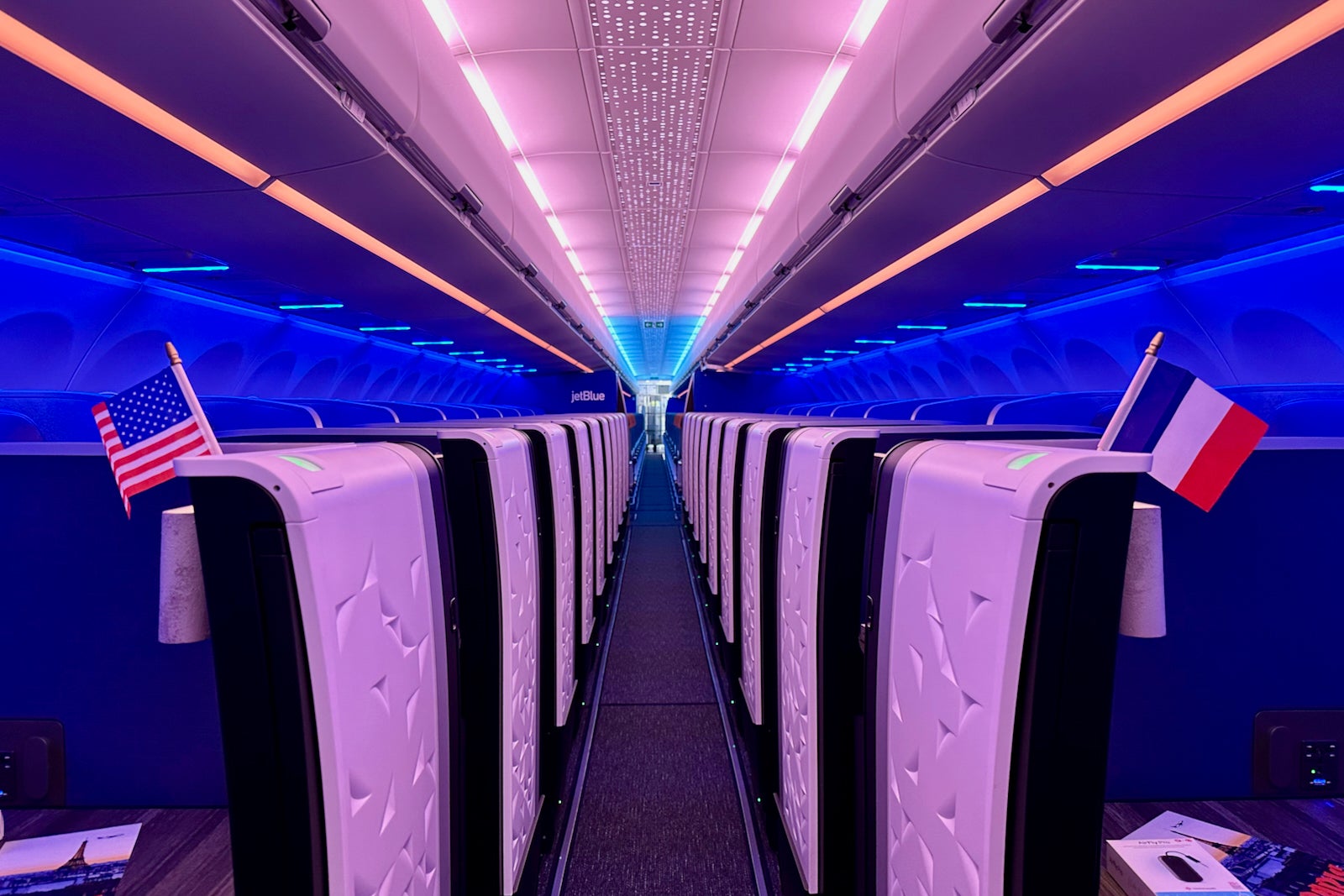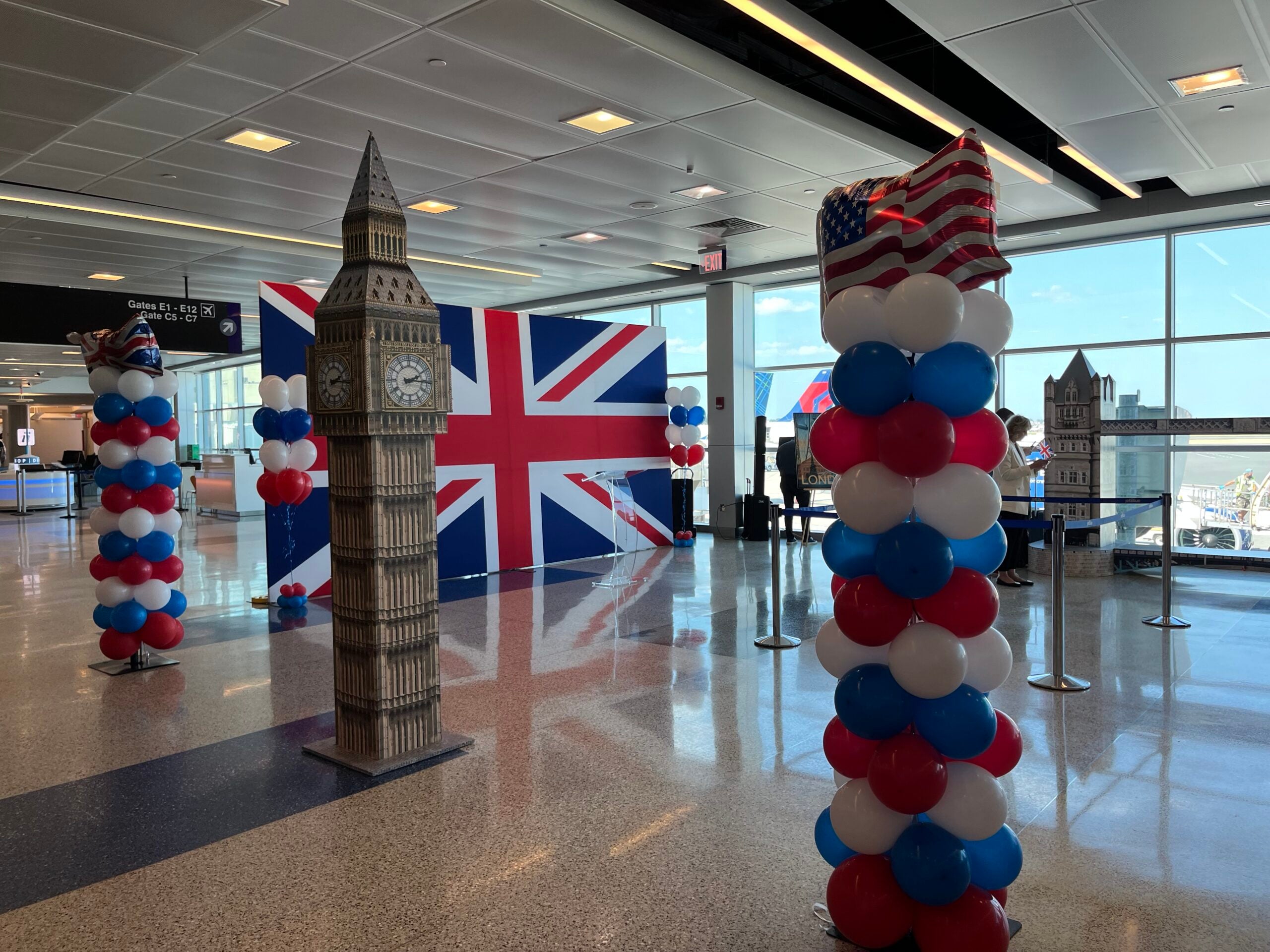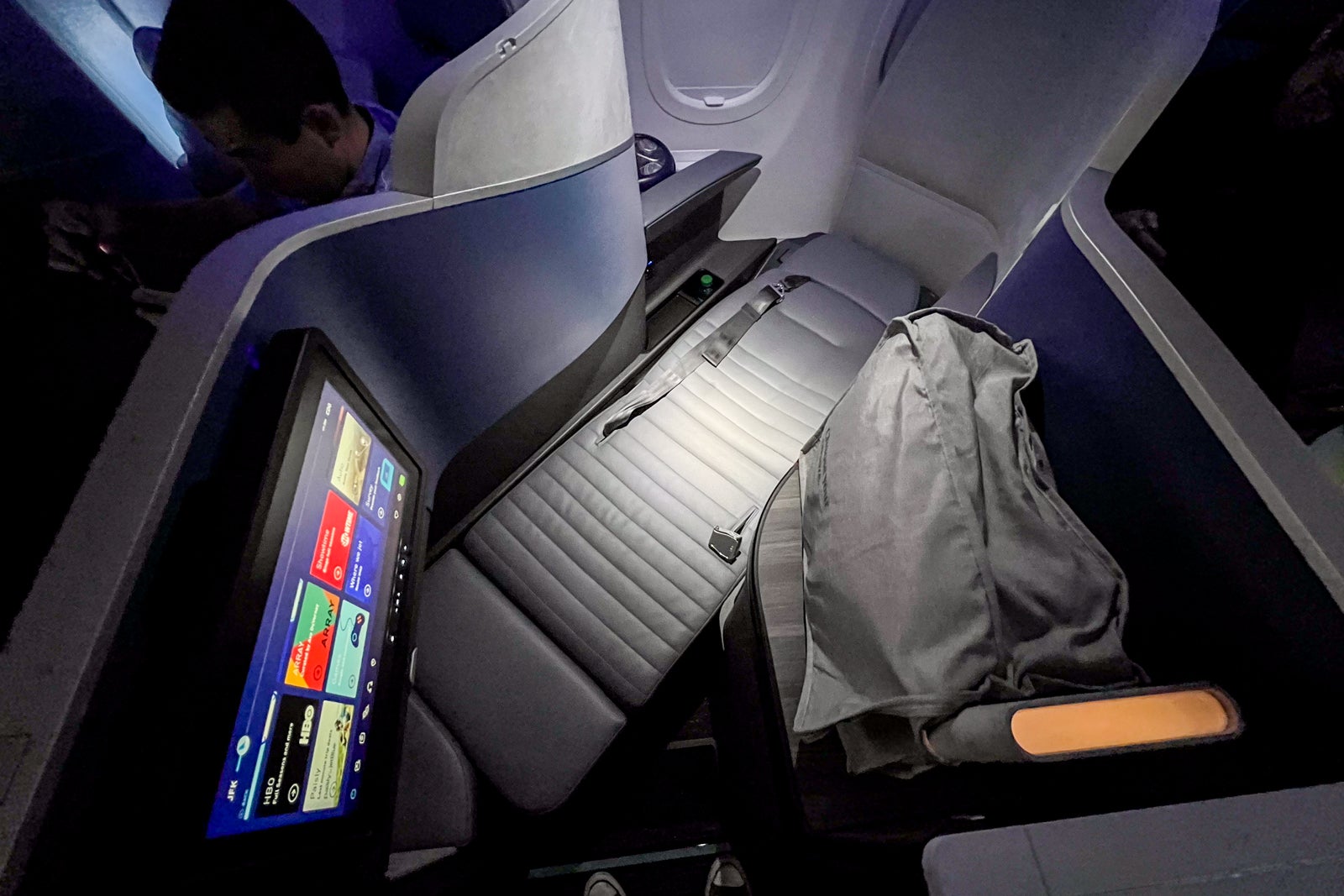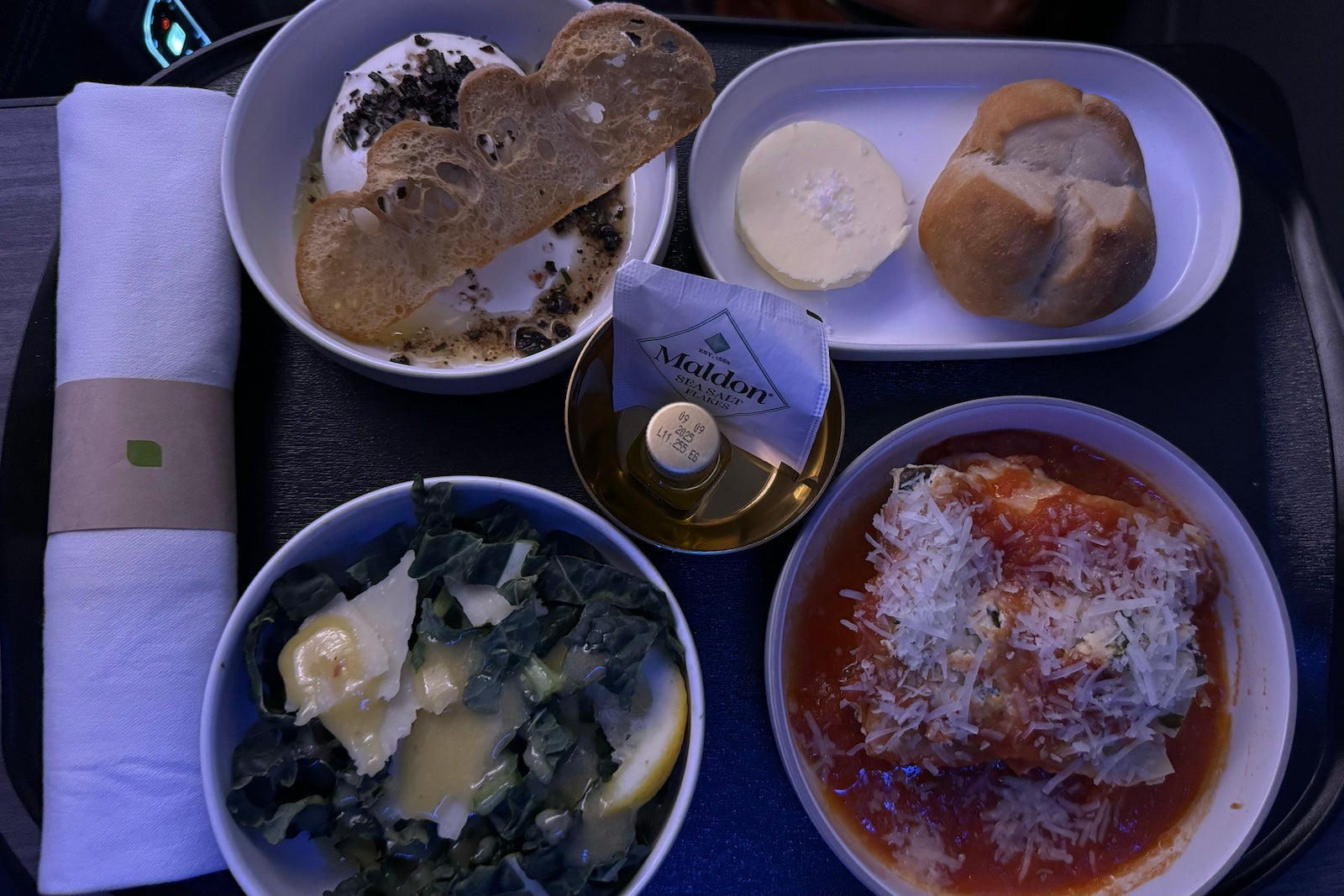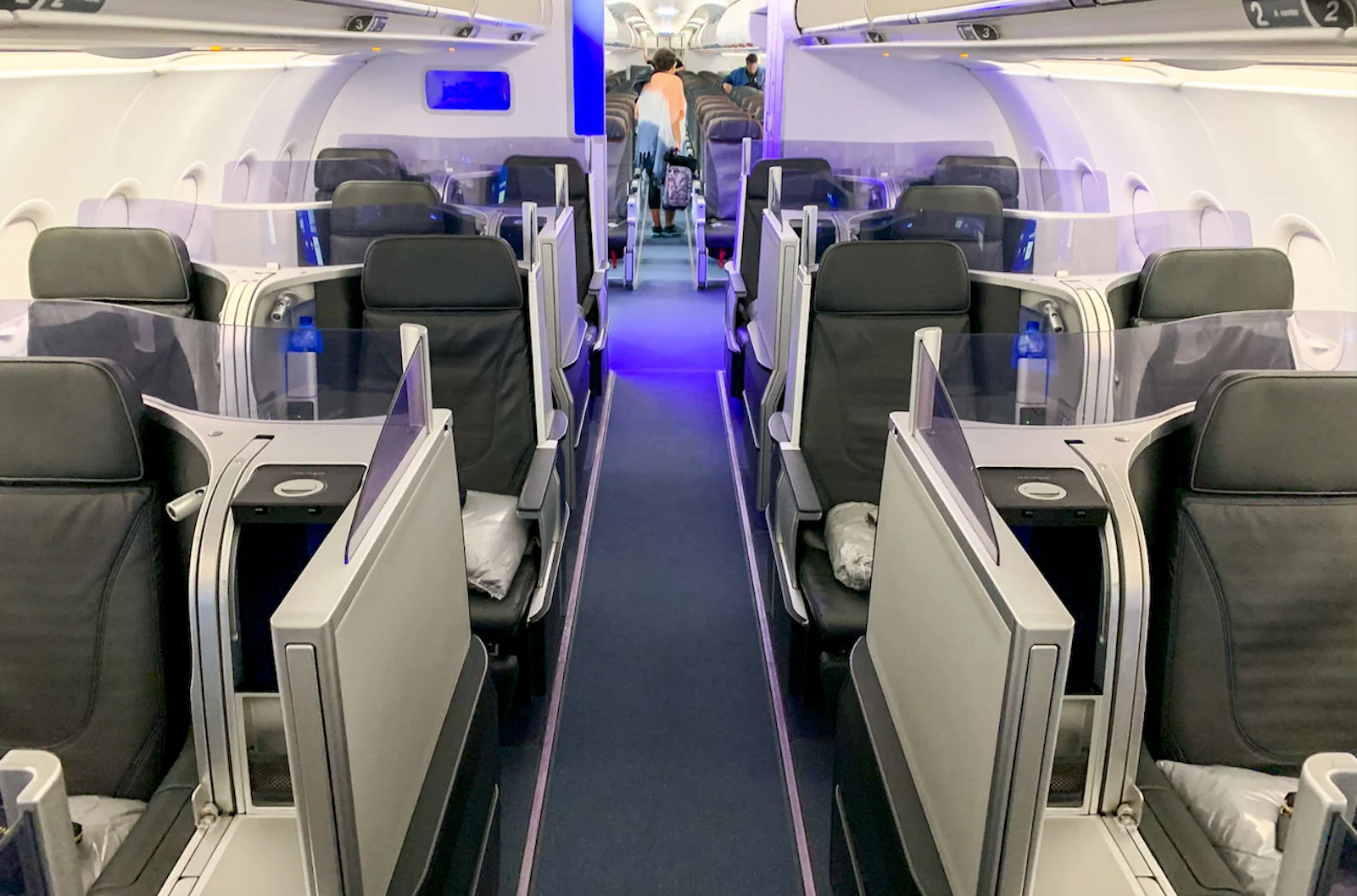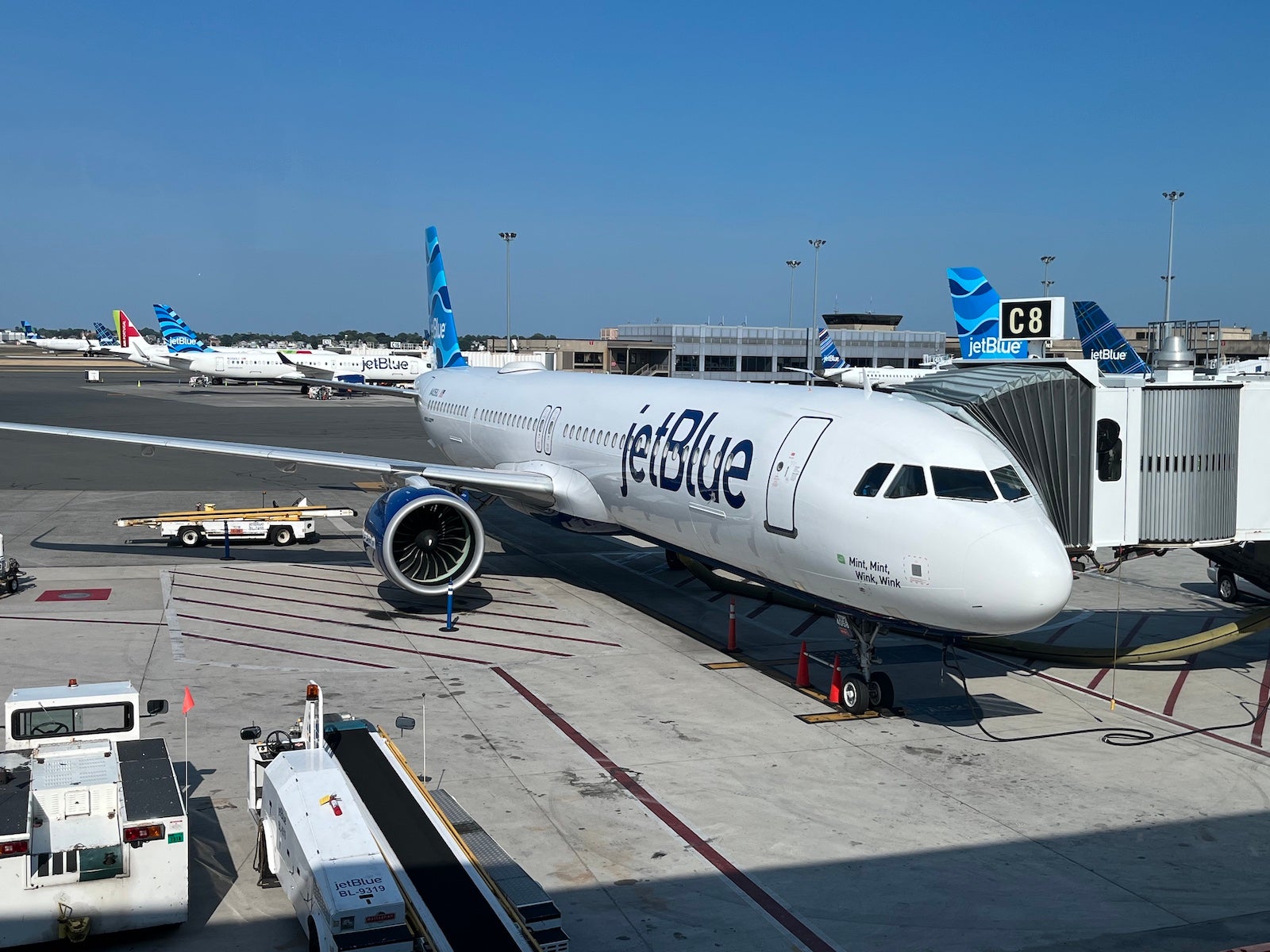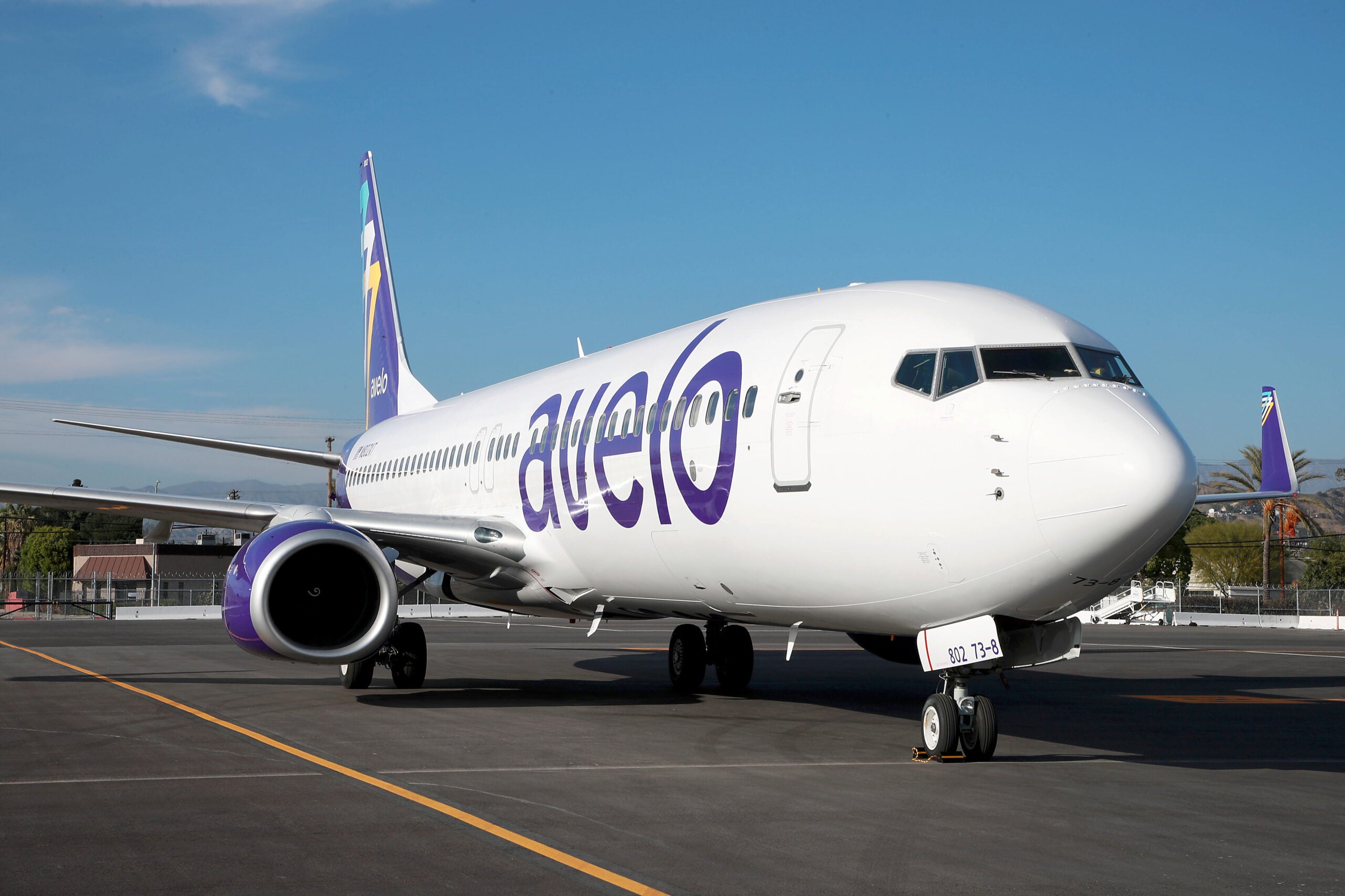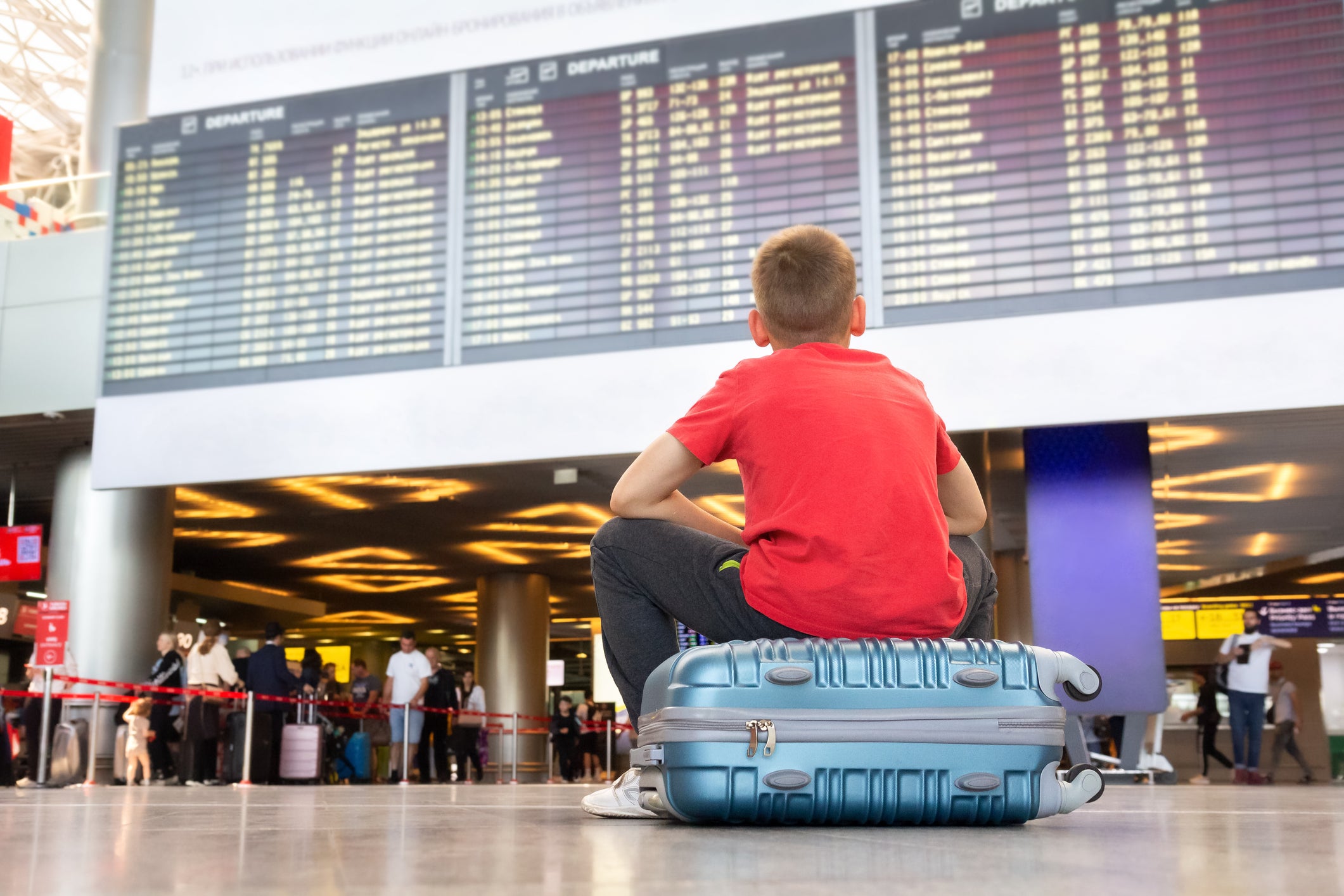JetBlue’s once unthinkable Mint cabin is now a ‘shining star’
When JetBlue debuted its swanky Mint cabin a decade ago, there were plenty of skeptics. Essentially a lie-flat business-class seat, Mint marked a dramatic departure from the egalitarian cabins that had defined the airline since its launch in 2000.
But the cabin has won over passengers since being introduced in June 2014. Today, it’s largely known for its high-end accommodations — like its spacious suites and top-notch dining options — all on board a single-aisle aircraft.
Mint has grown in prominence amid a booming demand for premium seats that’s coincided with JetBlue launching one transatlantic route after another — and rolling out its newer-generation version of the cabin in the process.
Want more airline-specific news? Sign up for TPG’s free biweekly Aviation newsletter.
As JetBlue celebrates Mint’s 10th anniversary in the skies, the cabin looms large in the company’s hope to return to profitability for the first time since the pandemic began. Among its plans: a shake-up in where some of its Mint-equipped planes will fly.
Network shake-up
In May, JetBlue announced plans to scale back some wintertime service to Europe. Starting in October, the carrier will cut all of its winter flying to London Gatwick Airport (LGW) and trim its off-peak schedule to Paris-Charles de Gaulle Airport (CDG).
That, combined with CEO Joanna Geraghty pledging to be more “opportunistic” with JetBlue’s European growth shortly after assuming her post in February, could have left some wondering whether the carrier might be souring on the transatlantic expansion championed by her predecessor, Robin Hayes, who left his post earlier this year.
But this was precisely the type of move airline executives envisioned when they first dreamt up the Mint cabin more than a decade ago, said JetBlue president Marty St. George, speaking to TPG in one of his first interviews since returning to the carrier’s leadership team earlier this year.
“This comes back to the original rationale for Mint, and especially expansion into the transatlantic, which is, these planes are fungible,” St. George said. “And every airplane we fly has to live by the best and highest use of the airplane.”

Daily Newsletter
Reward your inbox with the TPG Daily newsletter
Join over 700,000 readers for breaking news, in-depth guides and exclusive deals from TPG’s experts
Out with some Europe, in with Phoenix, San Juan
As part of the airline’s upcoming network shake-up, JetBlue will instead send more of its premium-equipped jets to warm-weather destinations, most notably Phoenix Sky Harbor International Airport (PHX) and Luis Muñoz Marín International Airport (SJU) in San Juan, Puerto Rico.
Over a six-month period starting this October, JetBlue’s total seats to Phoenix will be up 98% versus a year prior, according to data from aviation analytics firm Cirium. Its seats to San Juan will spike nearly 29%.
That emphasis, St. George said, is more about the potential JetBlue sees in those cities than larger concerns about the viability of its European foray.
“This is totally seasonal. It’s a tale of two seasons,” he said.
In fact, transatlantic revenue this summer is trending right where the airline had hoped, St. George told analysts last month at a Wall Street event — while noting costs for the service are running a bit high.
Yet, the cost JetBlue fears more this winter is the “high opportunity cost,” as St. George put it, of missing out on big-spending wintertime vacationers.
The company’s internal data suggests customers are likely to book Mint in droves this winter — provided that the airline flies enough Mint-equipped jets to those leisure destinations coveted during the colder months.
“I look at Edinburgh and Dublin. We’re happy with what we’re seeing right now with summer results. I would not want to fly those in the winter,” St. George said of the two seasonal summertime routes JetBlue recently launched. “But the beauty of this is, we have great places to fly in the winter.”
Mint’s second decade
It’s likely similar network shifts will be part of Mint’s story in the coming years.
“This is actually what we love about this fleet, is the flexibility,” St. George said. “I would continue to see this expectation of planes gyrating back and forth between the Atlantic and premium domestic.”
What else might passengers notice in the cabin’s second decade?
“First and foremost, they’ll see growth,” St. George said, noting that most of the carrier’s Airbus A321 deliveries planned for 2024 and 2025 feature the Mint cabin.
That could mean more Mint-equipped jets on cross-country and Caribbean flights similar to the ones JetBlue is focusing on this winter.
“We’re really running out of domestic, non-Mint, transcontinental services, and we’re very happy with the profitability we’re seeing there,” St. George said. “So I would think we would continue to grow that.”
Food and beverage emphasis
JetBlue also continues to see its food and beverage offerings — both in Mint and in coach — as hallmarks of its service going forward.
It’s an edge over competitors that, in the airline’s eyes, it can more feasibly deliver than a lounge like the one Delta Air Lines opened this week at John F. Kennedy International Airport (JFK), where both carriers — as well as American Airlines — operate hubs.
“People love lounges … Lounges are also extremely expensive. And the question is, are lounges [profit and loss] positive to do this big, transatlantic lounge network? And the answer is no,” St. George said. “Food and beverage is clearly [an area] we’ve chosen to be ahead. And not just our food, but also the wine choices that are paired by our restaurant partner. To me, that’s how we compete in this market.”
Hard-product fixes
If there’s weakness showing in the Mint cabin, it may be aspects of the “hard product” that has — in some cases — seen better days.
Many JetBlue A321s still fly the legacy Mint seats that date back to the mid-2010s. Those seats are less luxurious than the ones you’ll find on newer jets that have entered service since the pandemic began.
Though JetBlue has said it hopes to give those cabins a face-lift in the future, it hasn’t yet announced firm retrofit plans — without which the carrier risks losing ground to its competitors, one top industry analyst argues.
“JetBlue can’t ignore this,” said Henry Harteveldt, president of Atmosphere Research Group. “Yes, they did some reupholstery to the [legacy] Mint seats on the original aircraft, but that doesn’t excuse the fact that they’ve now got an inflight entertainment system that’s a generation old at least; that you’ve got people in the two-by-two [configuration] seats where it’s, frankly, very cramped.”
New and improved: Take a tour of JetBlue’s A321neo Mint business class
Even Mint seats on the newer jets have shown early signs of wear and tear — though St. George noted the malfunctioning buddy seats TPG noticed last summer in the front-row Mint Studios have largely (all but six) been fixed.
“We found a couple of things we want to address, but that’s the normal course of business in a new seat,” St. George said. “We identify things, and we fix them.”
This week, the carrier also revealed it will keep Mint privacy doors open on eight of its A321neo jets to meet FAA guidelines. Seth Miller of Paxex.Aero first reported the news, noting it’s a way for the airline to avoid staffing an extra flight attendant on certain routes.
Looking ahead
JetBlue’s head winds are well documented. In recent years it’s seen a Northeast Alliance with American Airlines and a planned merger with Spirit Airlines fall apart. Engine issues beyond its control at Pratt & Whitney will ground some jets for prolonged maintenance. And air traffic control challenges in the New York corridor it calls home frequently snarl operations.
But in many ways, the bet the airline made on Mint has paid off.
“There’s no question that JetBlue has been in the right place at the right time with Mint in the wake of COVID— when the premium leisure boom became much more prevalent,” Harteveldt noted. “Mint is one of JetBlue’s most distinctive products, and one of its most important.”
That fact is striking for St. George, who was on the airline’s team when the cabin was nothing more than a vision.
“I vividly remember when we brought the business case to the board, saying, I promise you this is only going to be 13 airplanes,” he said, laughing. “And who knew. It’s 54 now.”
Loyalty basics: Best ways to earn airline miles
Now back after five years away from the carrier, St. George called the product a “shining star” for the airline, speaking last month to investors.
“There’s no question in my mind this is absolutely, positively the best experience in a premium cabin from the U.S. to Europe,” he told TPG. “I would put it up against anyone else’s product, easily.”
Whether Mint can maintain that edge in its second decade will surely loom large in JetBlue’s hopes of a rebound. For now, JetBlue’s customers can look forward to seeing more of it.
Related reading:

